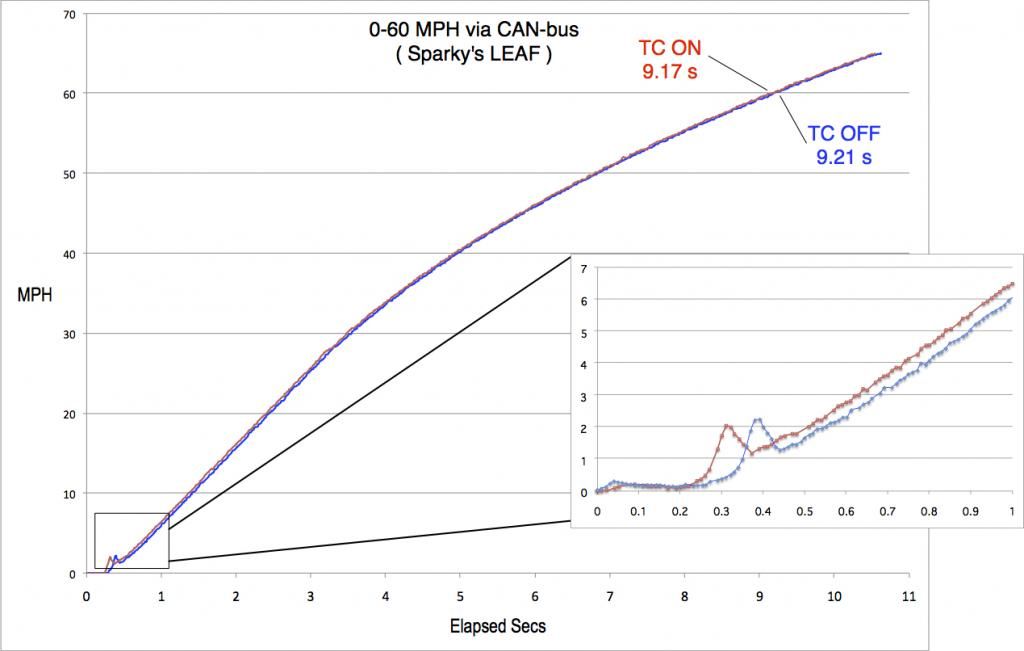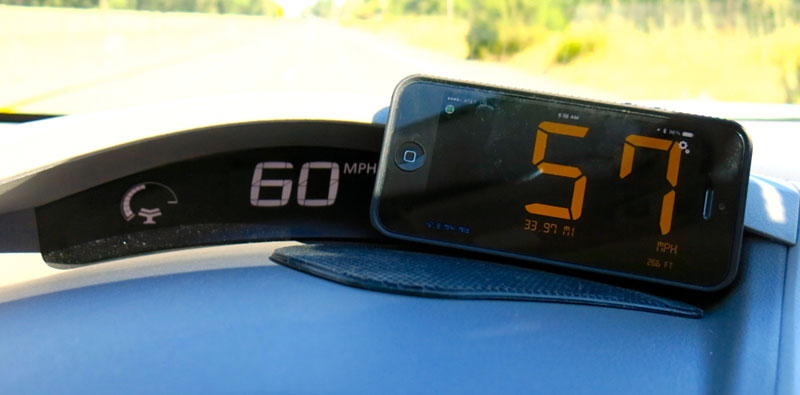This discussion is quite interesting to me, that two other 0-60 times quoted were so similar but both equally inaccurate, and that neither of the posters seem to be aware of why they are inaccurate.
I decided to do a little forensics to see how these other results were arrived at. One is easy to figure out, but the other is a little bit more nuanced.
The R&T road test referenced here was originally published in Road & Track in their February 2011 issue, but as is the case in publishing a magazine, the data collection, and availability of test cars, manufacturers schedules have significant lead times. In this case, the LEAFs press launch and when article was written was between late October 2010 and early December 2010 in order to meet a late January publishing schedule to have the issue on newsstands in February.
A good friend and colleague of mine works in Nissan PR, and is probably the longest surviving PR person in Nissan USA. He was also responsible for the LEAF US launch media tour. I asked him about the cars used for the 2010 launch, about R&T's published 0-60 times, and if he remembered anything particular about the R&T article or the launch in particular. His response was that the cars used for the launch were pre-production LHD cars from Japan (the first non-pilot LHD cars). These cars were trimmed as the short-lived SL-e version, and while representative of the production US cars, were not final examples.
So could these pre-production cars actually been faster than final production cars? Possibly, but the other thing he told me was that :
I have dealt with 0-60 topics my entire career, and I hate it....because times and driving styles vary, period!!!!
The press event that R&T attended that was the basis for the February article was a typical 1 day event, with journalists jockeying for a limited number of cars, and driving them on public roads, so a true instrumented road test most likely did not happen. So how did the R&T journalists (and others) derive their 0-60 etc. times? They most probably did what most do, which is to get a stopwatch, and record the time the speedometer goes from 0-60.
So that brings us to the other report from Sparky that shows a similar result to the R&T test, and the clue that solves why both of the results are off.
Sparky's data is based on sniffing the CAN-Bus for messages relating to the vehicles speed. What Sparky (and the R&T writers) did not take into consideration is that the messages that drive the speedometer display are padded by 5%. This is shown when the LEAFs speedometer numbers are compared to a GPS or inertial speedometer.
Now padding a speedometer display to read a higher speed than the car is actually going is widespread with almost every automobile manufacturer doing it. My Porsche speedometer reads about 5% higher as do my other cars. 5% seems to be the default fudge. Now why manufacturers do this is up for debate, as none of them will admit that they are intentionally doing it. The interesting thing is that the odometer display is driven from a different message and is very very accurate. So the bottom line is that the messages that drive the speedometer display are not accurate, they display 105% of actual speed.
So, for both R&T as well as Sparky, they are really reporting 0-57 mph times, and 9.4 seconds is a reasonable result. And if their results are adjusted for the 5% padding, their results become 9.87±.05 which are very close to my GPS based timings of 9.9±.05 seconds.
So at the end of the day, both R&T as well as Sparky's data was correct, but they both did not finish correcting the data to show the true results of their findings. So the 0-60 times of 9.9 for 2011 LEAFs and 10.1 for the 2013-14 stand.
For the rest of you, just be aware that ALL 2011 ~ 2015 LEAFs speedometer are 5% fast, so just learn to make that adjustment in your head as to how fast you are really going.
Now for my soapbox, this brings up the larger issue about using CAN-bus based data for evaluating the LEAFs performance. While the basis and background of some CAN-bus data is public domain, the majority of platform or manufacturer CAN-bus data is proprietary and can only be theorized as to what it really means, and the accuracy or even the meaning of the data is suspect. This again is not limited to the LEAF, every manufacturer has "secret" data operating their car, and none of them show the least bit interest in opening their kimonos about that data with the public.
All of the LEAF smartphone scanner developers use this secret data (along with known data) fully aware they don't really truly know what it means, where it comes from, and what it really does, so they make best guesses (many of which seem to be very good, but at the end of the day, they can't be proven without the manufacturer's help), but to the end user, especially the novice, all of the data is taken as factual and accurate. This has caused a number of the major controversies that about the performance of the LEAF, that I think could have been avoided if the data was qualified instead of being taken for fact.


